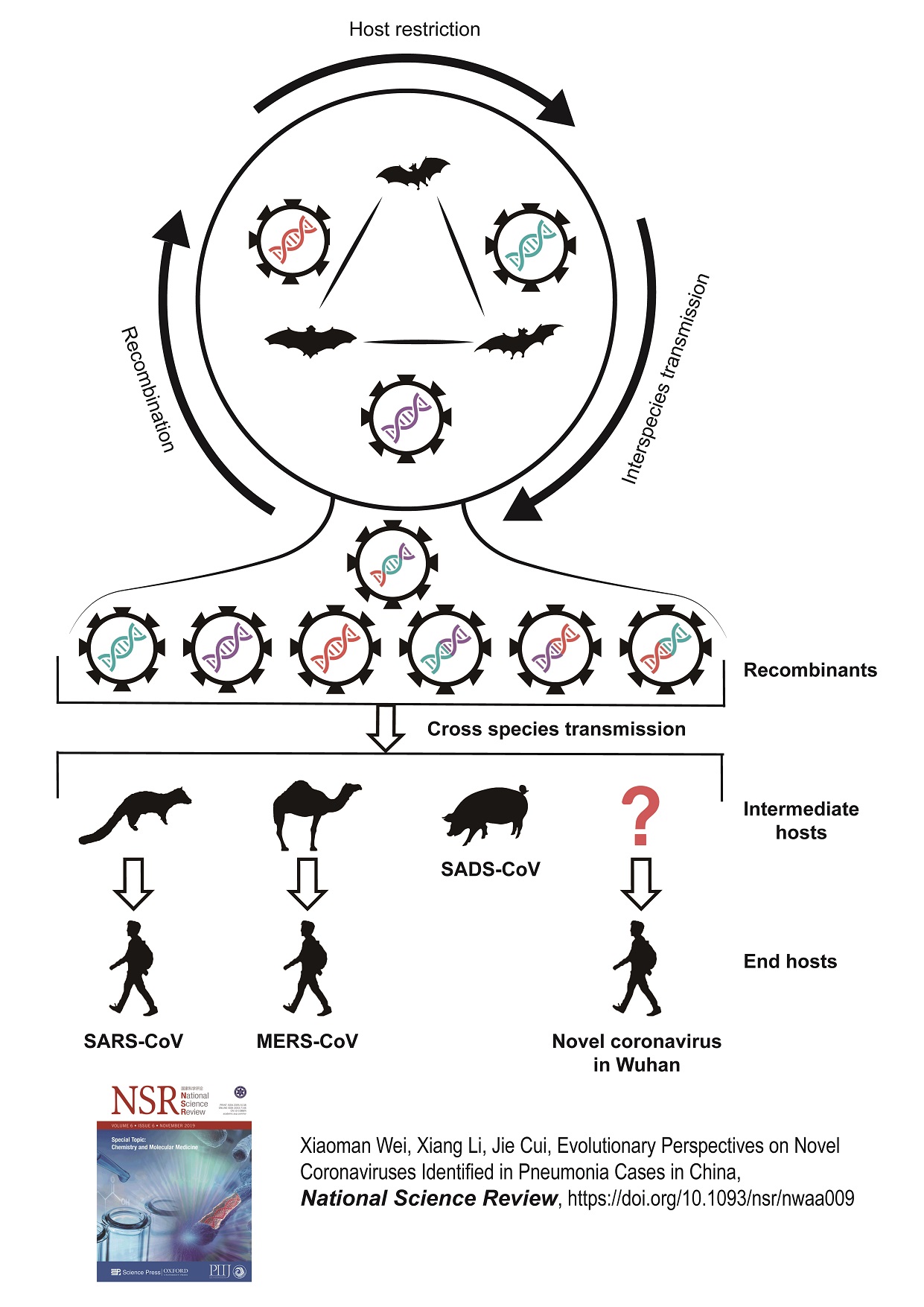Researchers of Institut Pasteur of Shanghai revealed the early evolutionary mechanism of SARS-CoV-2. On January 29th, 2020, National Science Review published a research work entitled “Evolutionary Perspectives on Novel Coronaviruses Identified in Pneumonia Cases in China” from Jie Cui’s unit, Institute Pasteur of Shanghai, Chinese Academy of Sciences. This work describes the bat origin of SARS-CoV-2, which belongs to the seventh coronavirus that can infect humans. The virus is significantly different from SARS and MERS viruses, with a genomic difference of 21% and 50%, respectively. Based on the limited genomic sequences, the work showed at least 17 sites involving amino acid changes on different proteins, and several of these changes were more common in one family cluster. This suggested the virus is mutating during evolution, albeit to a very low degree. As for whether the virus has undergone adaptive evolution, it is still inconclusive, and more viral genomes analysis and subsequent functional experiments targeting mutating sites are needed. The researchers also called for close monitoring of the mutation, evolution and spread of the virus to guide the control of the outbreak. This work was supported by grant from Chinese Academy of Sciences.

Full text link: https://academic.oup.com/nsr/article/7/2/239/5717501

